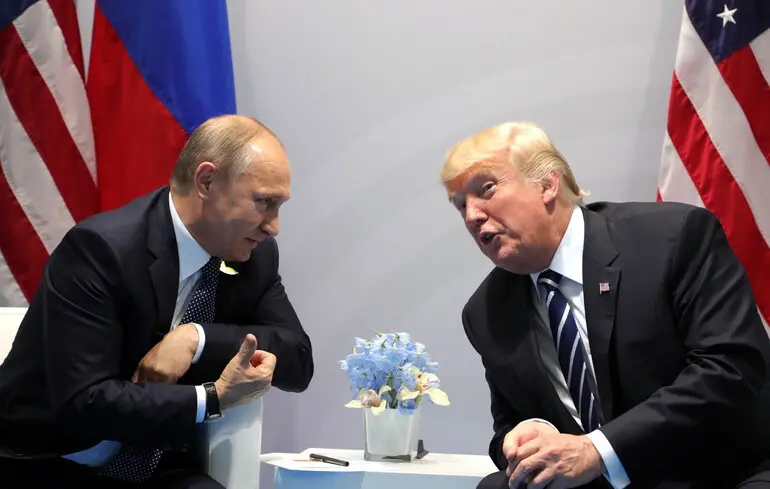Is Trump Ready to Trade the Arctic for Peace in Ukraine? An Analysis of Geopolitical Possibilities and Consequences

Within the global geopolitical arena, the question arises more and more often: could U.S.
President Donald Trump agree to a hasty exchange — relinquishing strategic interests in the Arctic in exchange for peace in Eastern Europe and Ukraine? According to Yuriy Ushakov, a long-time advisor to Vladimir Putin on foreign policy and former Russian ambassador to the United States, the northern regions are where the core economic interests of both nations intersect, and where large-scale, mutually beneficial projects could be realized to shift the balance of power.
These insights are reinforced by analysts suggesting that the upcoming meeting between Trump and Putin in Alaska might serve as a platform to discuss such issues.
Known for his propensity for grand commercial deals, Trump often employs a strategy of offering lavish proposals that serve as leverage to achieve political compromises, as demonstrated in his recent resolution of conflicts in Rwanda and the Democratic Republic of Congo.
An American-Russian Arctic agreement could open vast opportunities — granting access to some of the world’s largest untapped resources: approximately 13% of global undiscovered reserves, including 90 billion barrels of oil and over 35 trillion cubic meters of gas, controlled mainly by Russia.
Beyond resources, navigation prospects are equally significant — reducing transit times through the Northern Sea Route by 50%.
This would provide a competitive advantage for global trade, especially as melting ice caps make Arctic navigation more feasible.
Technological cooperation, possibly involving American companies, could yield enormous profits and lay a foundation for joint infrastructure development.
Historical precedents, such as the 2011 agreement between ExxonMobil and Rosneft, show that economic collaboration in this field is entirely possible and mutually advantageous — despite sanctions and political risks.
Renewing or initiating new projects along similar lines could dramatically transform regional energy dynamics, turning the Arctic into a new energy ‘border’ for the global economy.
Politically, Putin could use the Arctic as a leverage tool to achieve diplomatic objectives in negotiations with the West, especially concerning Ukraine and nearby regions.
The likelihood of the U.S.
consenting to such a shift depends on complex political and economic calculations.
For Ukraine and Europe, such a scenario presents a potential threat — further isolating Ukraine and deepening its geopolitical crisis while challenging its prospects for regaining control over occupied territories.
The question remains whether Trump is willing to make such a compromise, driven not only by the pursuit of lucrative deals but also by the evolving nature of international relations, where each move can have far-reaching consequences for regional stability and security.

